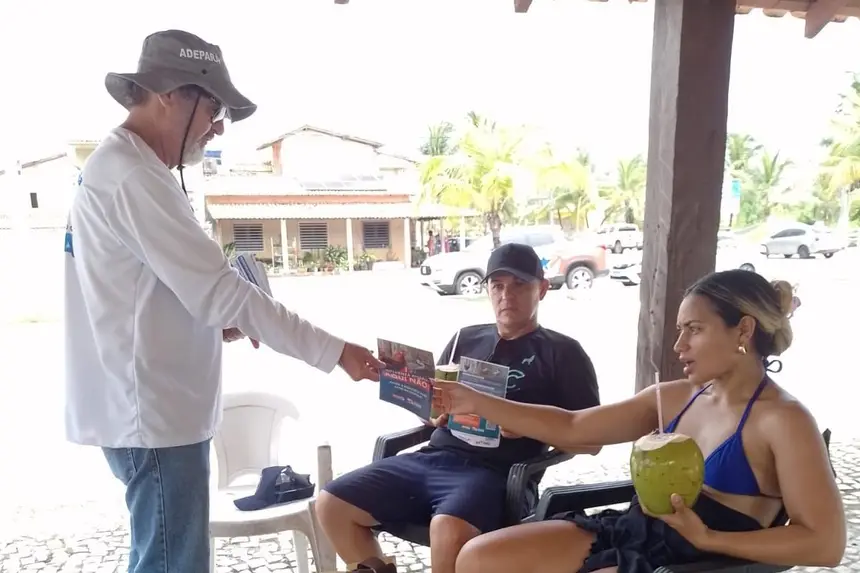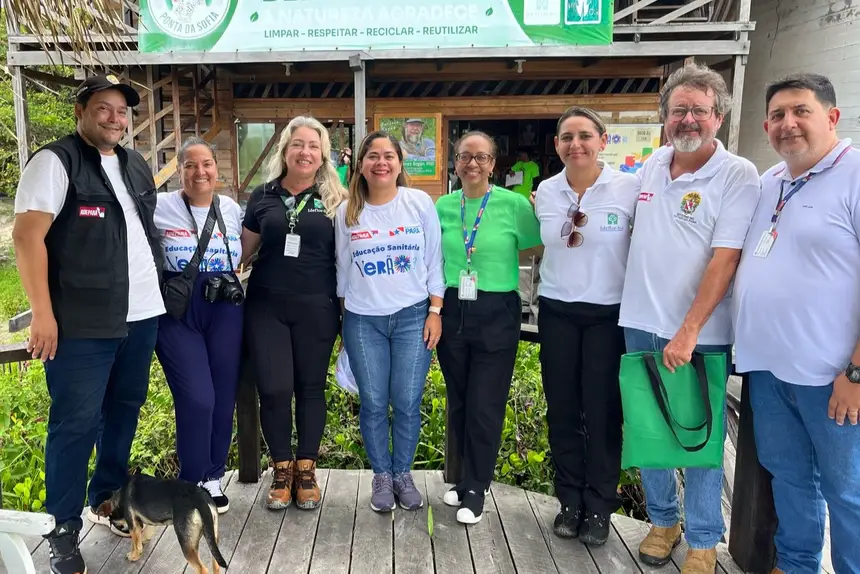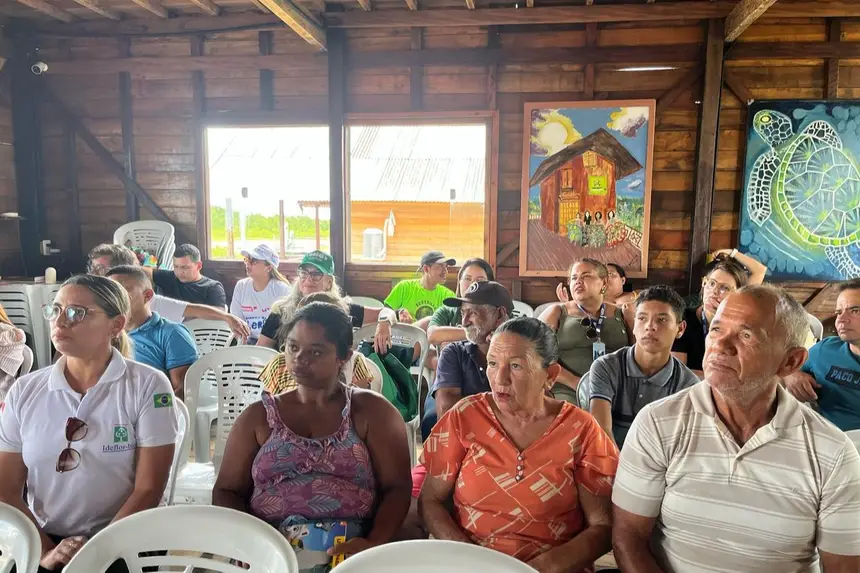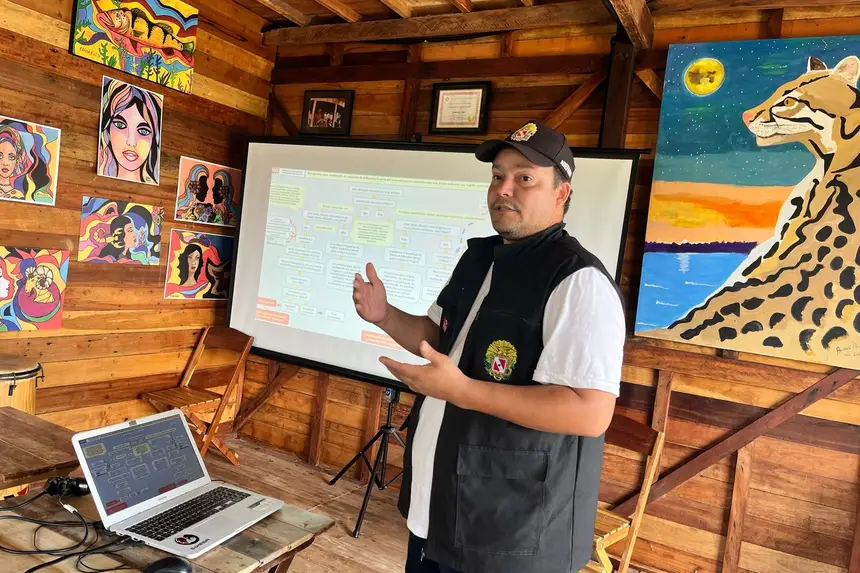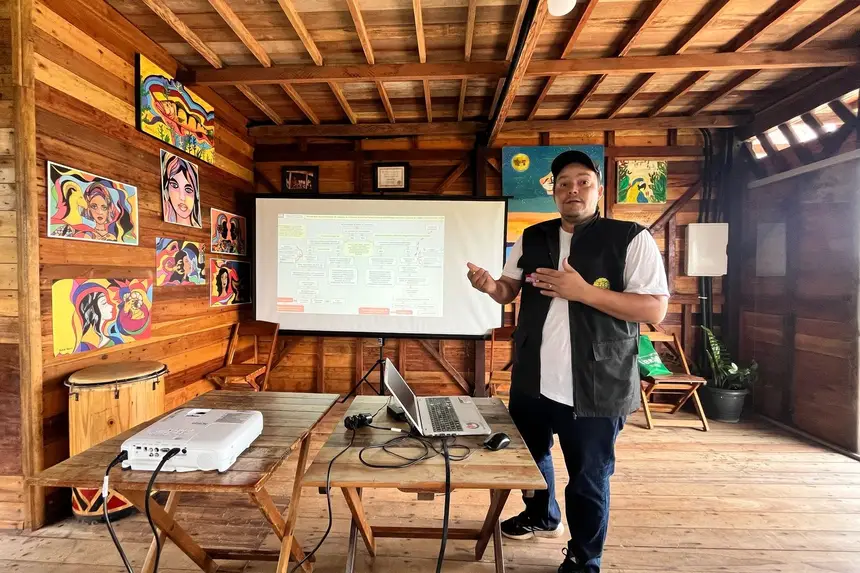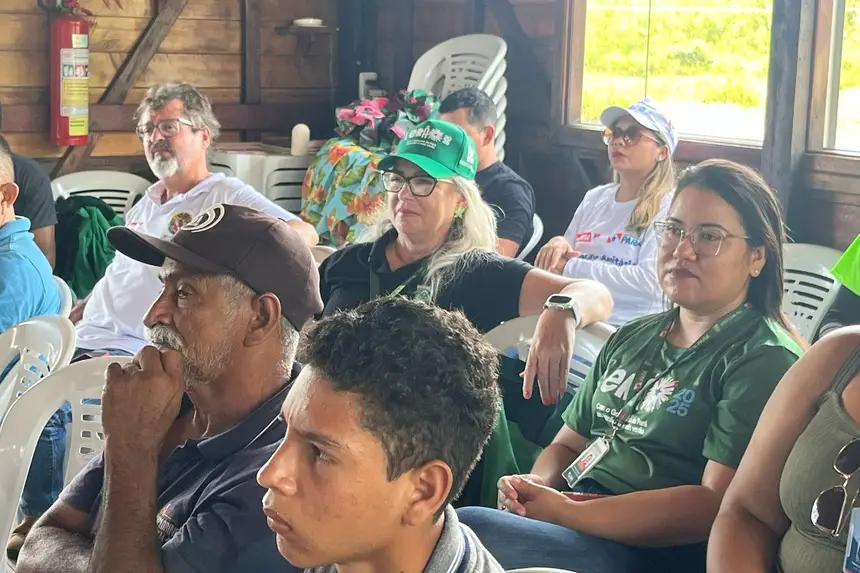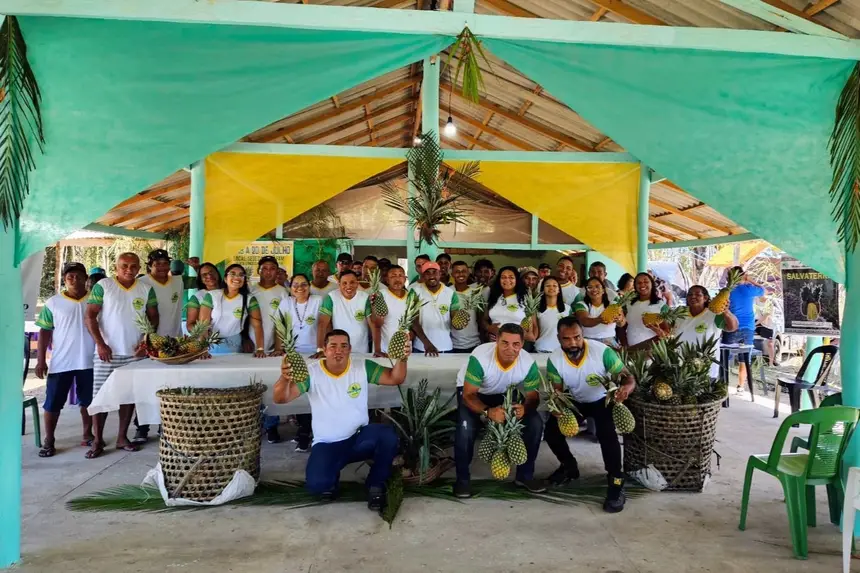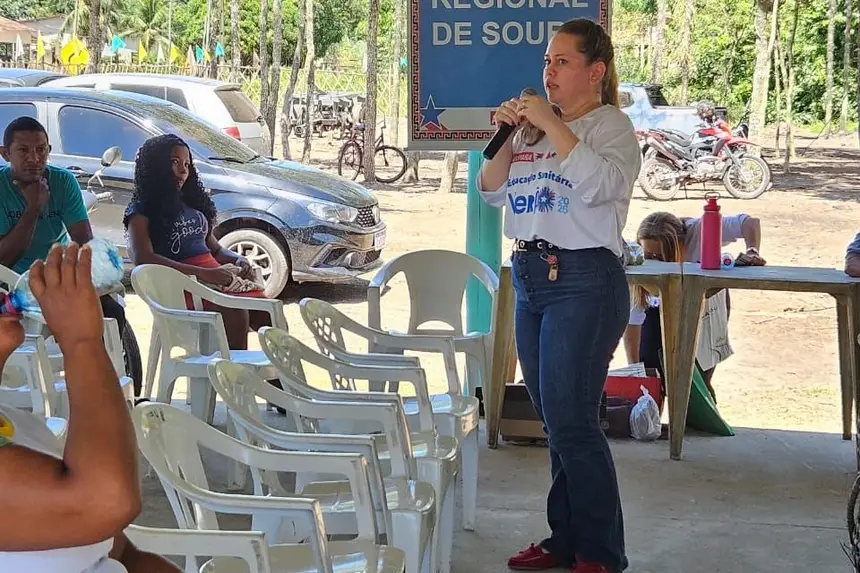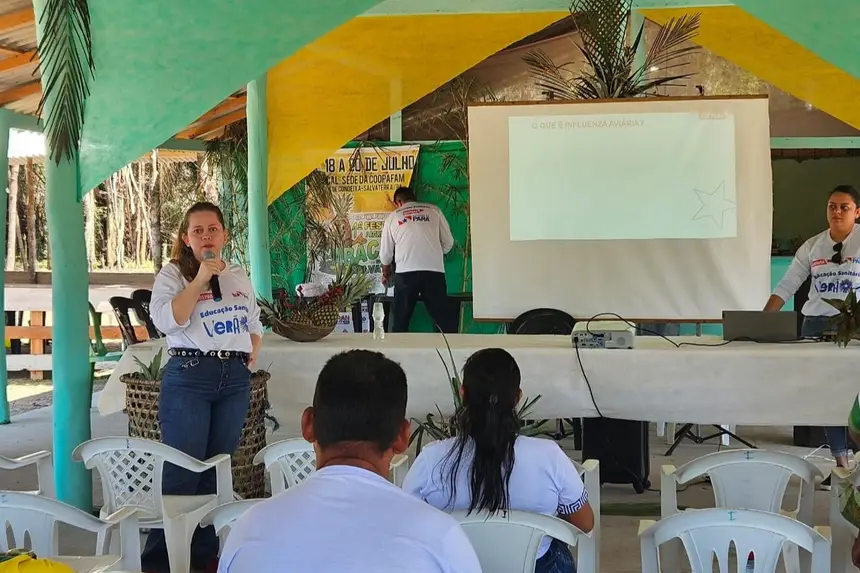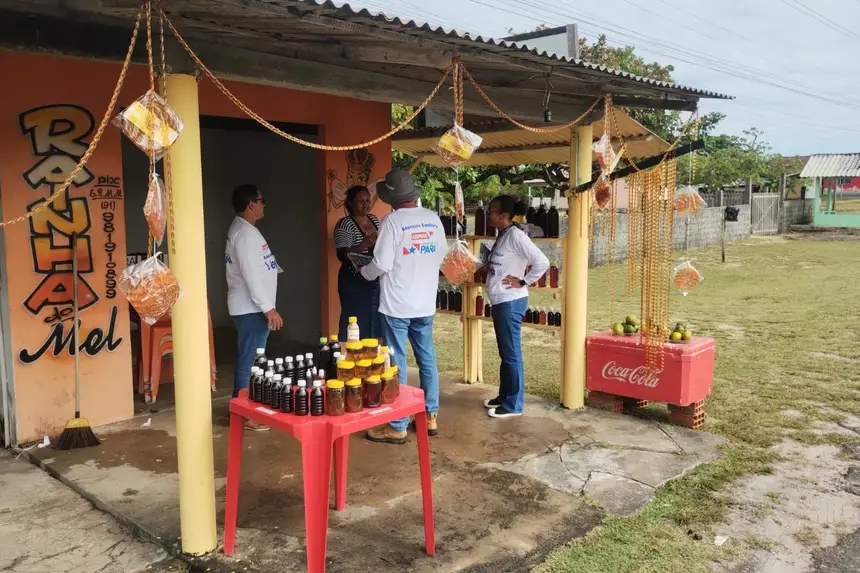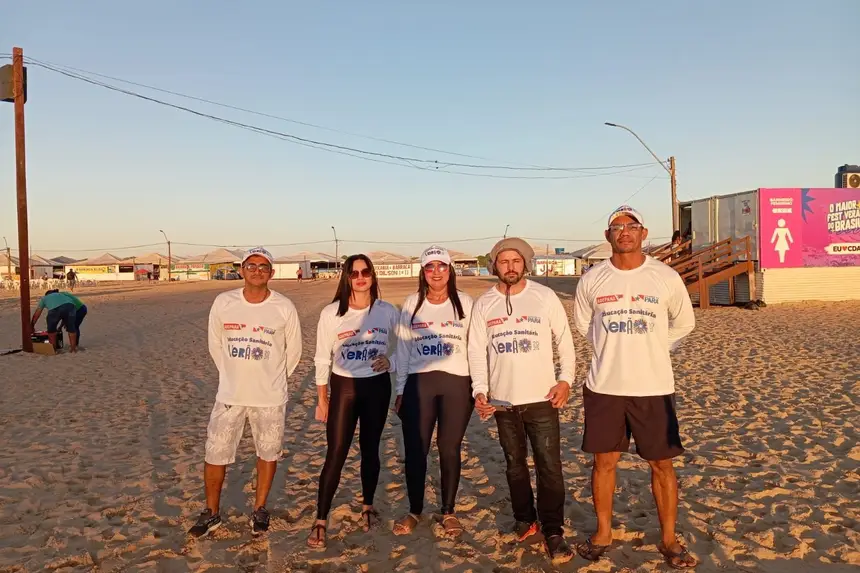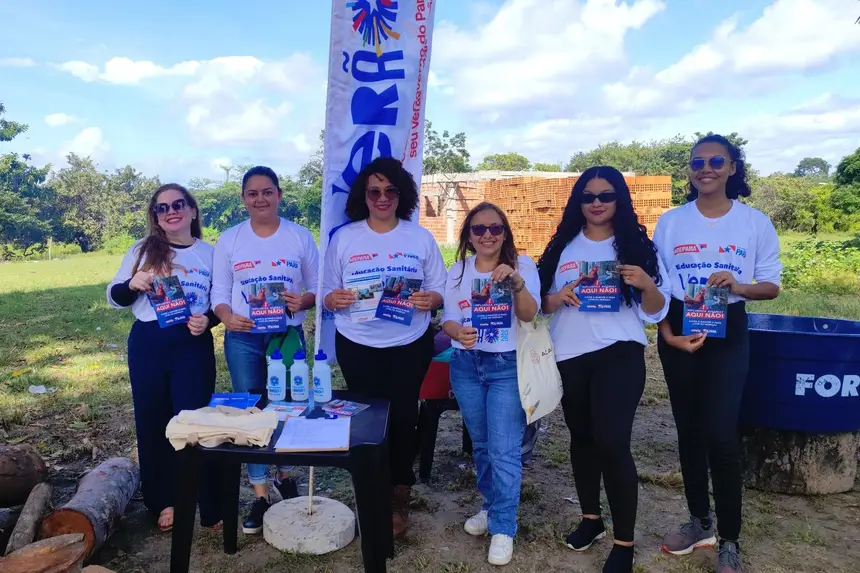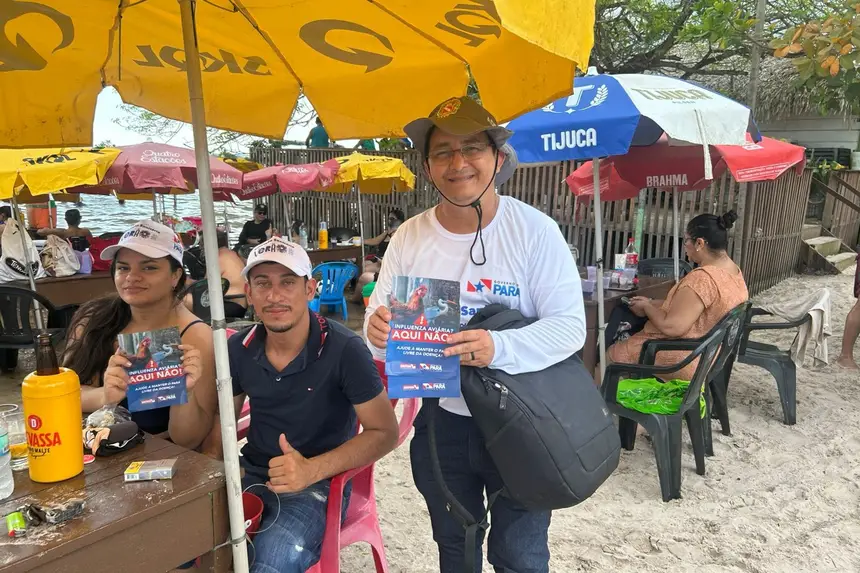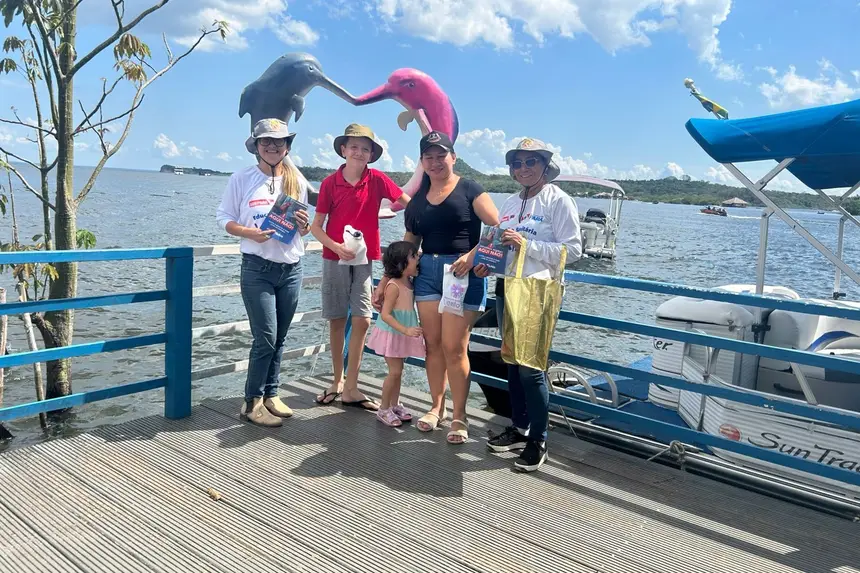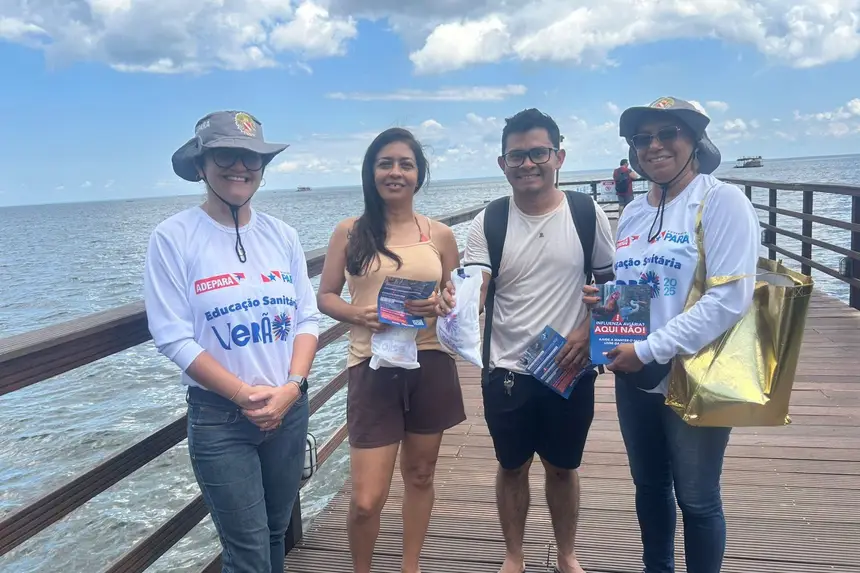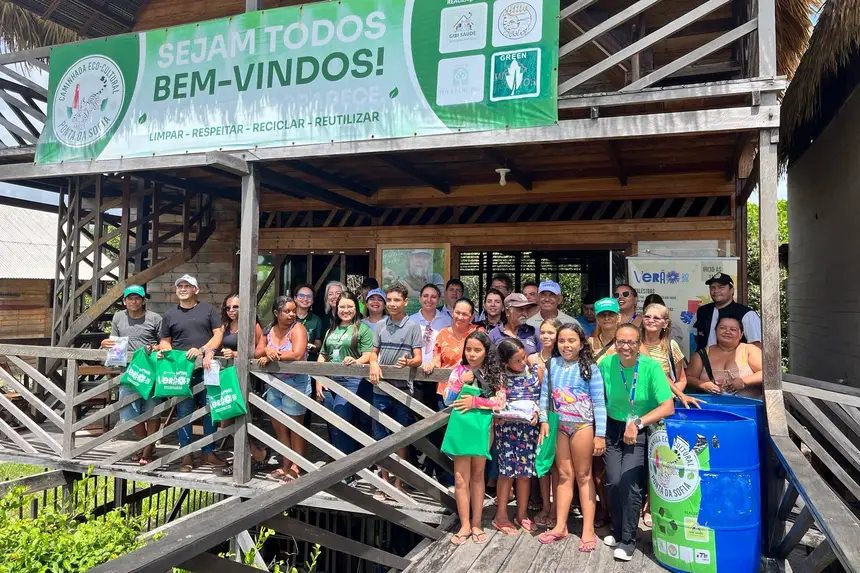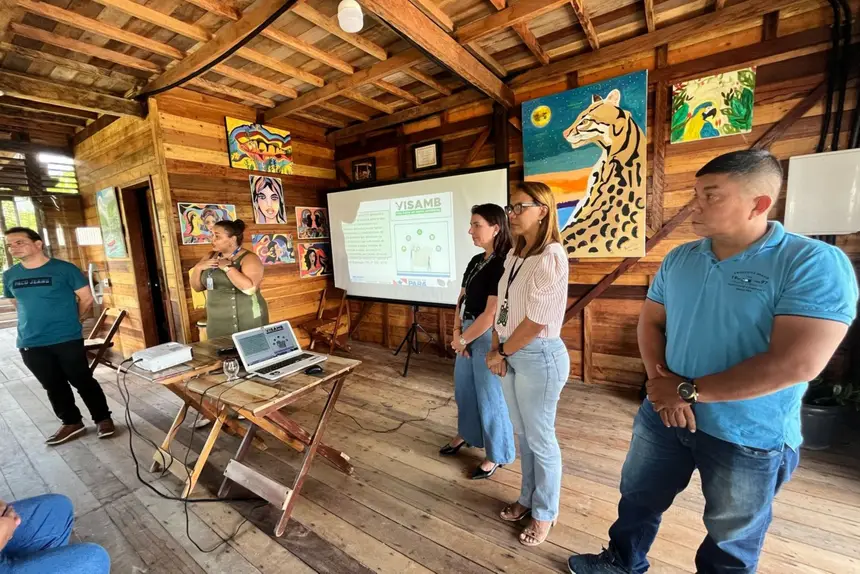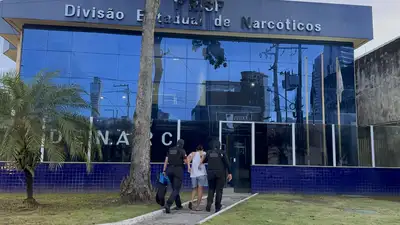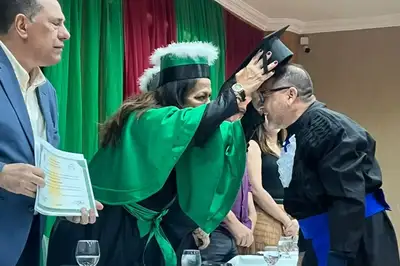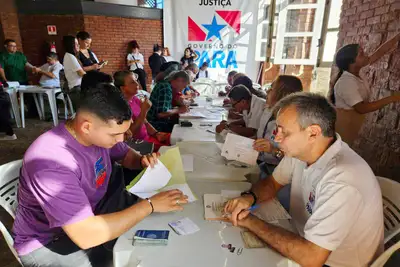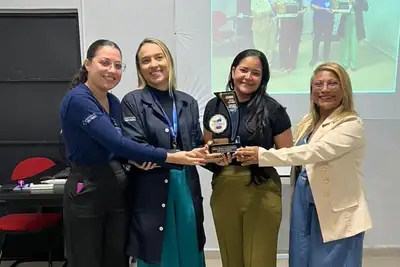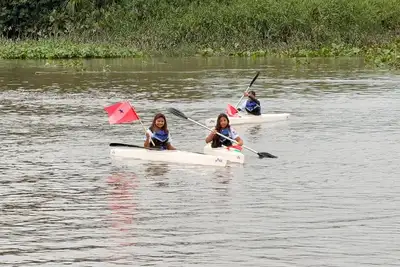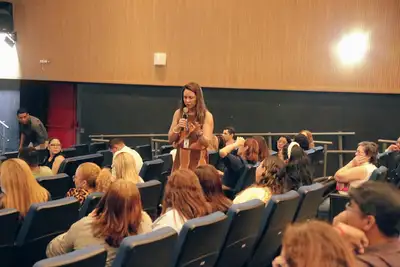Educational actions by ADEPARÁ on the beaches of the State help prevent diseases and pests
With teams made up of a total of 50 employees, Adepará was present in Salinópolis, on the Island of Marajó, in Santarém and Conceição do Araguaia
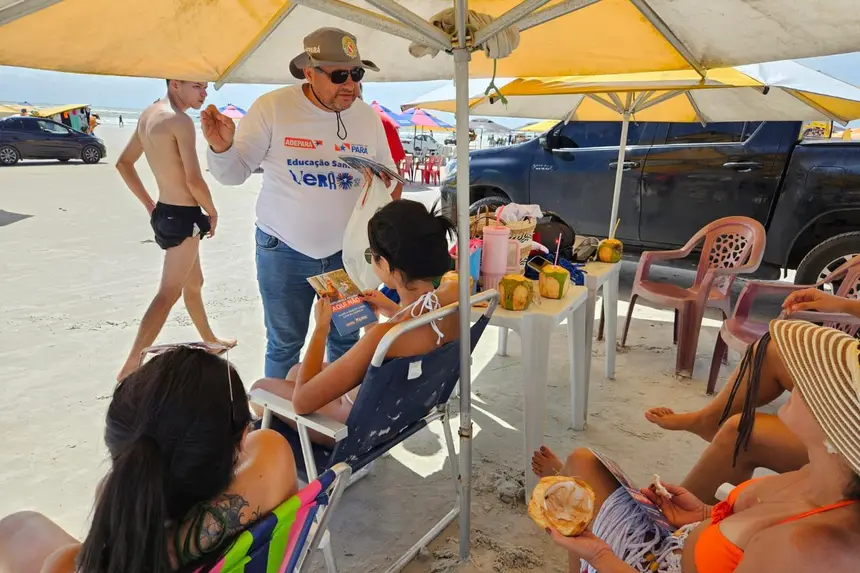
The Agricultural Defense Agency of the State of Pará (Adepará) is reinforcing the importance of agricultural defense for public health and the protection of agricultural crops. For the third consecutive year, the agency is part of the Government of Pará's Summer Operation with an educational circuit that travels through the main beaches of the state, in partnership with federal, state, and municipal agencies.
With teams made up of a total of 50 employees, Adepará was present in Salinópolis, on the Island of Marajó, in Santarém and Conceição do Araguaia for the fourth consecutive weekend. The goal is to raise awareness among the population about the prevention of zoonoses — diseases transmitted from animals to humans — and pest control in crops throughout Pará.
Salinópolis - In Salinas, Adepará, in partnership with the Institute of Forest Development and Biodiversity (Ideflor-Bio), promoted lectures in the community of Ponta da Sofia, an environmental conservation area that houses a turtle nursery. The topics covered included the prevention of avian influenza and rabies in herbivores, as well as the importance of consuming inspected animal and plant products.
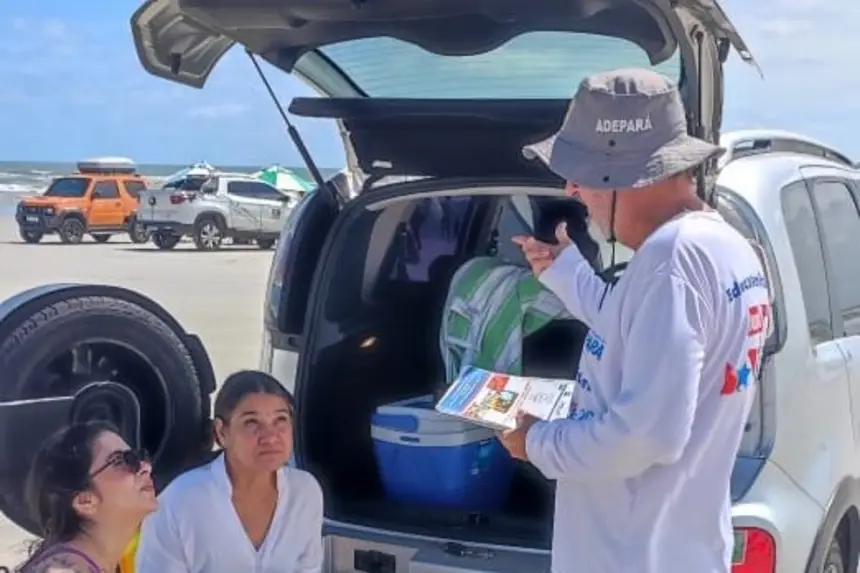
Ellivelton Carvalho, director of management and monitoring of the Conservation Units of Ideflor-Bio, highlighted the importance of inter-institutional collaboration. "Adepará brought an essential lecture on avian influenza, a topic of extreme importance and relevance for animal, environmental, and human health. The integration between state agencies has been fundamental to promote a sustainable, safe, and responsible summer," he stated.
The teams also carried out educational activities at Atalaia Beach, in conjunction with security agencies, and at the Porto Grande market. In Pirabas, Adepará participated in the I Honey Festival, distributing educational material and guiding beekeepers.
Kid Almeida, regional manager of Adepará in Capanema, emphasized the relevance of actions in risk areas. "In Salinópolis, we have migratory bird sites, so we brought to the people on the beaches the care they should take when encountering fallen birds. We also addressed topics such as rabies due to the proximity of mangroves, where there may be shelters for blood-feeding bats. It is very important to disseminate information about our work as an agricultural defense agency."
Marajó: sanitary education and agricultural traceability
In Marajó, educational actions extended beyond the beaches. The Adepará team was present at the I Pineapple Farmers Festival in Salvaterra, one of the main municipalities producing the fruit in the state. Information was disseminated about good practices in cultivation, traceability of the fruit through the issuance of the Plant Transit Guide (GTV), and the prevention of avian influenza, which is fundamental due to the presence of migratory bird sites in the region.
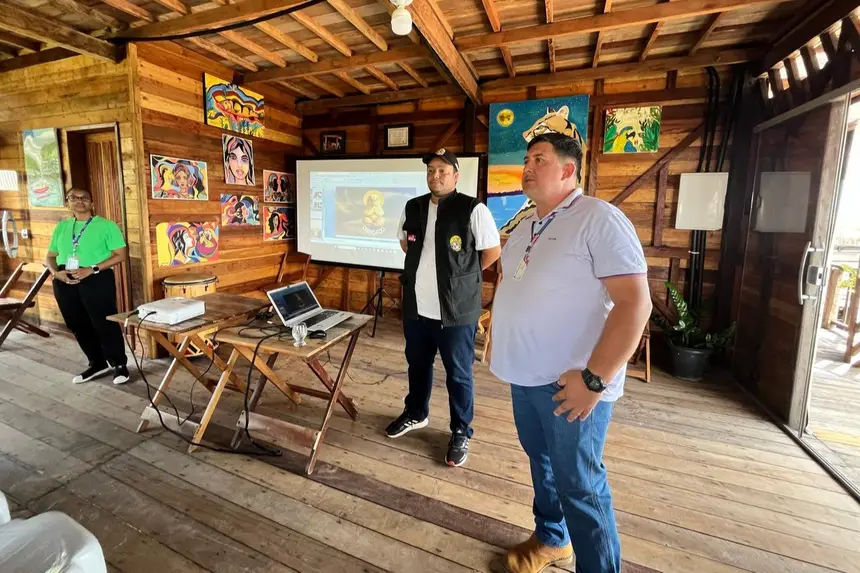
Olivar Valente, acting regional manager of Adepará in Soure, emphasized the role of sanitary education in protecting production and ensuring food safety. "In addition to animal defense, which is the monitoring of the breeding and production of buffaloes and other species, we also develop programs in the plant area, such as the GTV of pineapple and açaí, which is the traceability of the fruits. We monitor the registration and authorization of agro-industries, adding value to local production and ensuring a quality product in the consumer market," Valente explained.
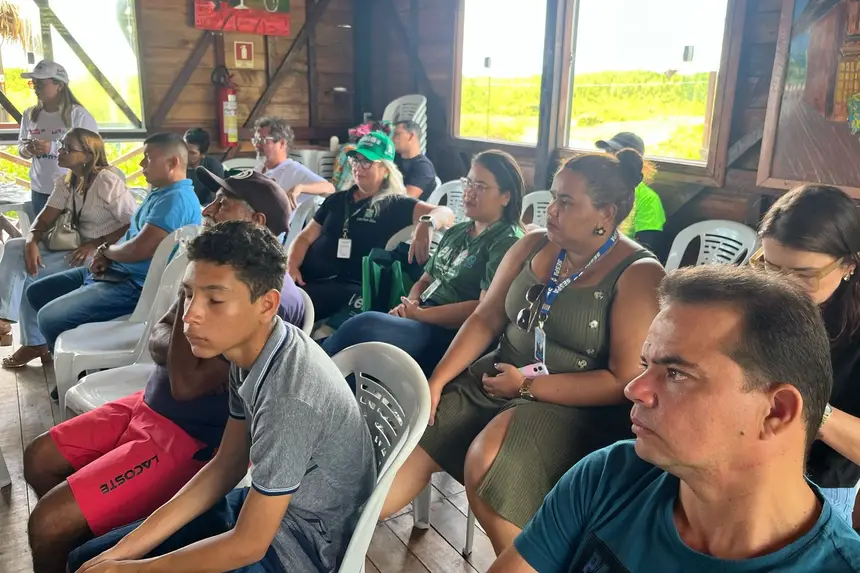
Santarém and Conceição do Araguaia: awareness about avian influenza
In Santarém, in the west of the state, Adepará teams carried out sanitary education actions at points of high pedestrian traffic, such as the city's waterfront and tourist beaches, such as Alter do Chão. In Conceição do Araguaia, activities took place at Praia das Gaivotas, which receives many tourists at this time of year when the Araguaia River dries up and beaches emerge. At the site, the Defense Agency team distributed educational pamphlets and gifts to bathers.


